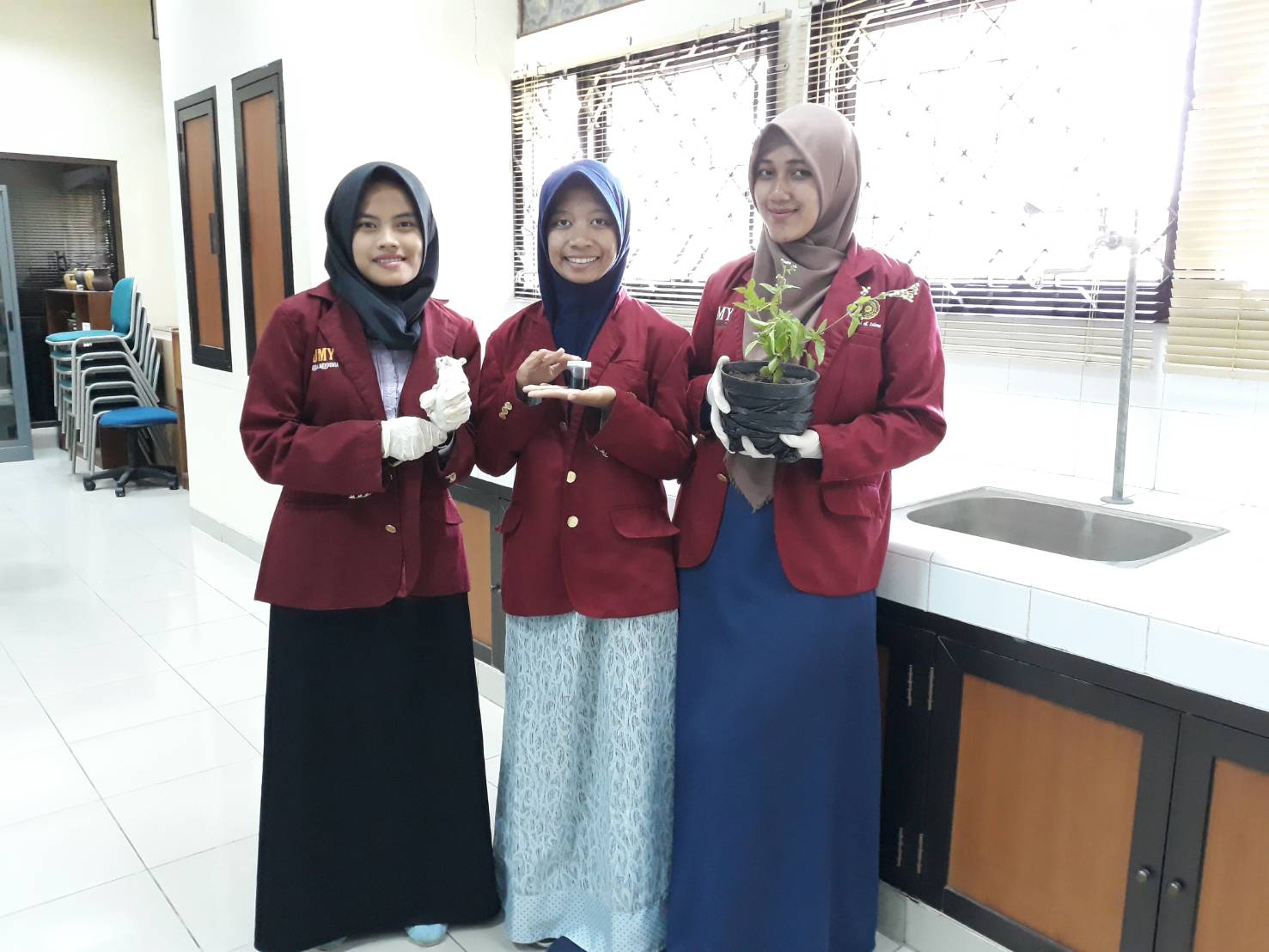According to International Agency of Research on Cancer Breast cancer issues in 2012 reached 12.9 percent of all cancer issues, while the death was accounted 12.9 percent. The number of women suffering breast cancer gets increased because cell division occurs faster. Data show that cancer treatment through chemotherapy, radiation and, surgery possesses shortages which can trigger cell death. Indeed, high cost of often hampers cancer sufferers to gain the best treatment.
Noticing the fact, alternative treatment for the breast cancer is vital. Students of Universitas Muhammadiyah Yogyakarta (UMY) proposed a notion to Program Kreativitas Mahasiswa – Penelitian Eksakta (PKM-PE) to develop natural chemopreventive agents expected to reduce the high treatment expenses. On a press release on Wednesday (18/7), the students did research on Ageratum conyzoides through an in silico and in vivo test.
A team leader Aulia Rahma informed that flavonoids in Ageratum conyzoides can be utilized as a chemopreventive agent for breast cancer. “An in silico test (a molecular computation system) revealed that nobiletin can bind targets. Indeed, VEDF and COX-2 (cancer cell markers) are better than 5-Fluorouracil, a commonly used chemotherapy drug. Thus, it can be conclude that Ageratum conyzoides can be employed to prevent growth of cancer cells,” she stated.
To gain accurate data, the team carried out an in vivo test to examine all living all organisms. “We used carcinogenic substances causing an experimental animal, a Sprague Dawley rat to be cancer through DMBA (Dimetylbenz(α) Antrasena) once a week for five weeks. Afterwards, we gave Ageratum conyzoides extract to the rat. A breast organ of the rat, later, was taken and examined using a dye. An observation through a microscope was done to find out the number of tissues,” explained Aulia.
Additionally, the research was carried out by three students of Department of Pharmacy of UMY, namely Aulia Rahma, Heni Ratnasari, and Vidia Noviyanti. They expected that the research findings could provide information for people since Ageratum conyzoides is easily found around them. “This study will be developed so that people, particularly cancer patients, can consume the product as a supplementary supplement (co-chemotherapy),” told Aulia.







